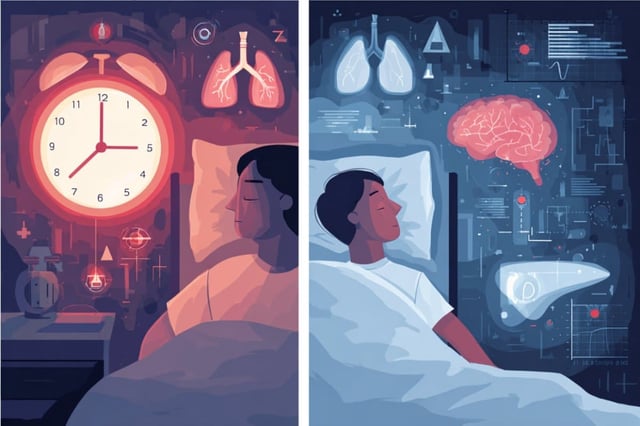Overview
- Researchers tracked sleep patterns over an average of 6.8 years in more than 88,000 UK Biobank participants using wearable devices.
- Erratic bedtimes after midnight and low circadian stability were each associated with over a 2.5-fold increase in risks for liver cirrhosis and gangrene, respectively.
- Sleep irregularity was estimated to account for more than 20 percent of disease risk in 92 conditions spanning metabolic, cardiovascular and neurological systems.
- Objective measurements showed that sleeping nine or more hours was not linked to most health risks and that about one in five self-reported long sleepers actually averaged under six hours of sleep.
- Elevated leukocyte counts and C-reactive protein levels suggest that inflammation may underlie the relationship between disrupted sleep patterns and chronic disease.



